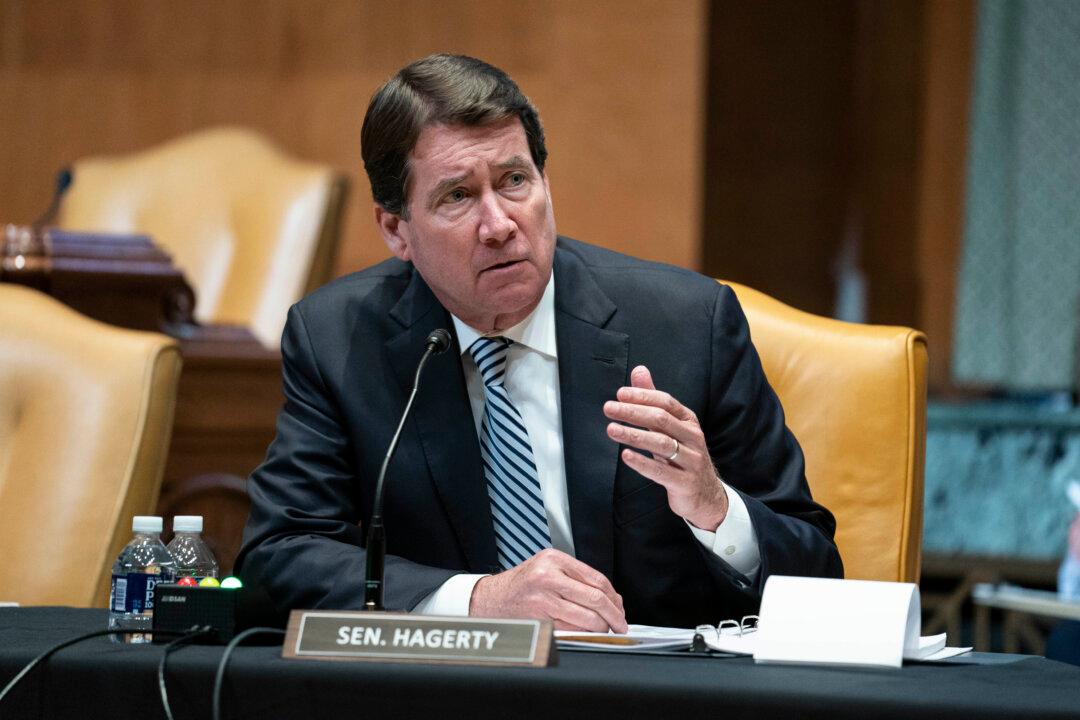Sen. Bill Hagerty (R-Tenn.) has introduced a bill that would strike down a provision of Democrats American Rescue Plan (ARP) spending bill that requires third-party payment processors like Venmo and CashApp to report transactions of more than $600 to the IRS.
The ARP was passed just weeks after President Joe Biden took office, making it through the thinly-Democrat House and Senate under the reconciliation process, which allows legislation to get past the 60-vote filibuster threshold in the Senate. The legislation, which cost the nation $1.9 trillion, was passed with no GOP support despite its hefty price tag.





